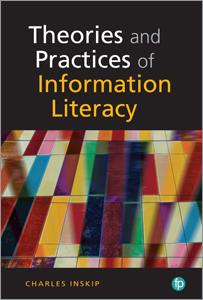
Primary tabs
You don't need to be an ALA Member to purchase from the ALA Store, but you'll be asked to create an online account/profile during the checkout to proceed. This Web Account is for both Members and non-Members.
If you are Tax-Exempt, please verify that your account is currently set up as exempt before placing your order, as our new fulfillment center will need current documentation. Learn how to verify here.
- Description
- About the author
From politicians and policymakers through funders and education providers to cultural heritage organizations, employers, community groups and social activists there is a growing awareness of the impact of digitization on engagement with information. Beginning with a recent history of IL to give context, this book Inskip provides a detailed review of theoretical models and practical approaches using real life examples from the wide information landscape.
This book will examine key issues around information literacy from an academic and professional perspective, and will:
- provide a detailed understanding of the theory and practice of information literacy and associated areas
- identify and discuss the challenges presented by the lifelong learning nature of IL in a digital world
- enable the development of appropriate skillsets of library and information professionals as central players in the delivery of IL in education, workplace and society.
This book will be a core textbook for library and information studies students and useful reading for library and information professionals; other professional services (including cultural heritage, careers, e-learning, teaching and learning, adult education providers, ICT); and wider stakeholders (policy makers, funders) seeking to engage with the debates around information literacy.


